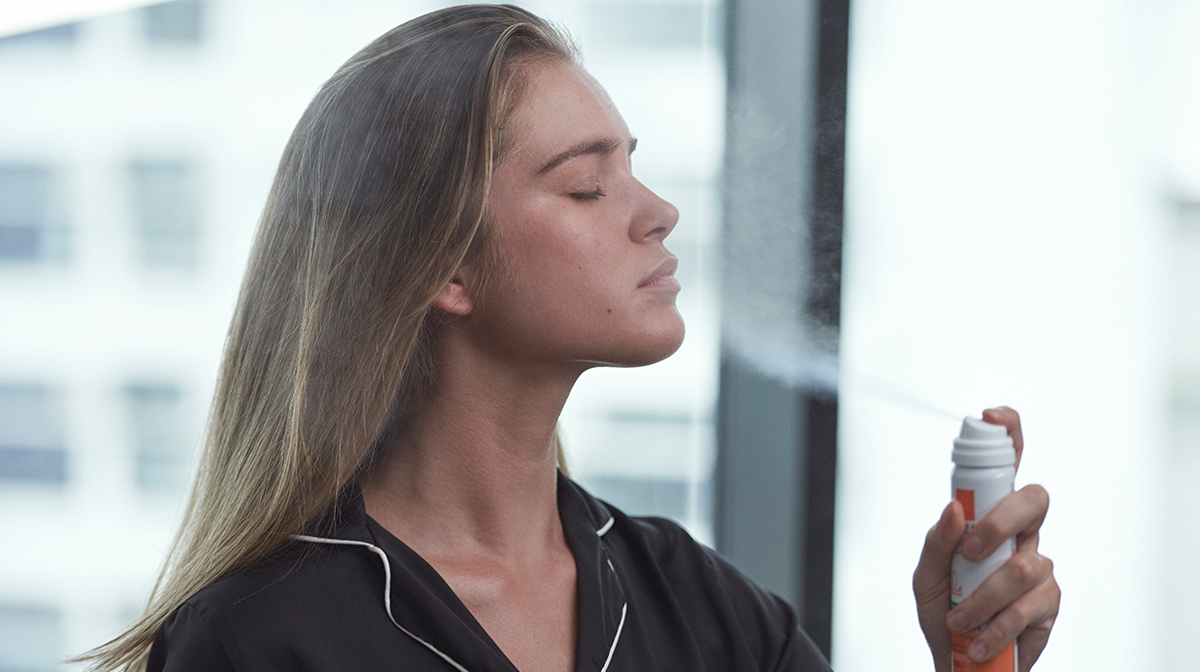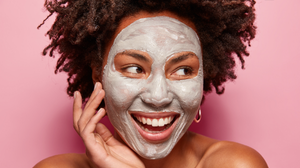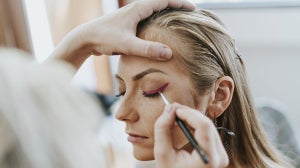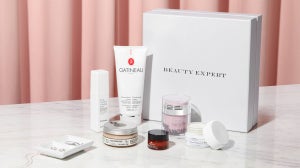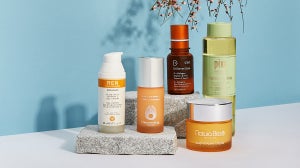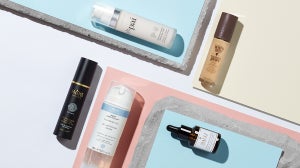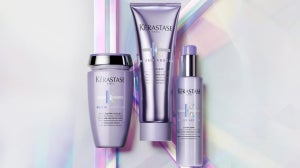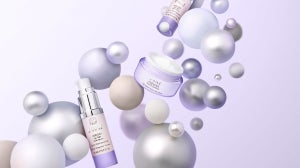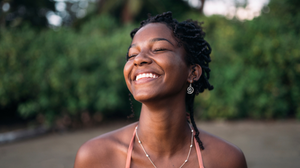
When it comes to skin health, Consultant Dermatologist Dr Hiva Fassihi knows a thing or two. With over 15 years’ experience as a qualified doctor and seven years’ of dermatology training under her belt, she now spends her days looking after patients with sun-sensitive skin disorders.
A modern day superwomen, she is also the clinical lead for the UK National Xeroderma Pigmentosum Service where she looks after patients who are at risk of developing skin cancer. and now, her adept interest in the largest organ the body has led her to work with one of the biggest brand’s in the suncare business.
“La Roche-Posay is a brand which is committed to working alongside dermatologists in the design and development of their sunscreen range.”
As part of our Autumn campaign #skinhealth, we’ve made it our mission to investigate the impact that the environment has on the skin and educate you on how you can keep protected all year round. Our Beauty Editor, Amy Nicholson, met with the skin doctor to talk UV rays, stressful lifestyles and why we should be getting more sleep.
AN:Why is wearing sunscreen important?
HF: Sunscreens are designed to protect the skin from the damaging effects of ultraviolet radiation (UVR). In the short term, they protect from painful sunburn. In the long term, they help prevent skin cancer and slow down premature ageing. They are important for skin health and are the ‘best anti-ageing product you’ll use’. However, for optimal protection, sunscreens must be used in conjunction with sensible sun-exposure behaviour, specifically avoiding the mid-day sun and keeping covered with a hat and appropriate clothing.
"Sunscreens are the best anti-ageing products you'll use."
AN:Can you recommend a non-greasy sunscreen that won’t block pores or cause blemishes?
HF: I would probably suggest the
which feels invisible when applied, designed for combination skin. The new is also very light with anti-shine technology. It is used as a top-up formulation which is easy to reapply throughout the day, even over makeup.AN:Other than SPF is there any other external factors that we should be protecting our skin against but probably aren’t?
HF: Stressful lifestyles, pollution, lack of sleep and excess alcohol, all play a role in our skin health. There is also some data to suggest that excess exposure to infrared (heat) radiation can also results in skin ageing through the production of free radical, however the effects are not dramatic. For me, the two most significant skin damaging factors are smoking and UV exposure. Don’t smoke and wear a high factor broad spectrum sunscreen on a daily basis to protect your skin.
"The two most significant skin damaging factors are smoking and UV exposure."
AN: Firstly, what actually are free radicals?
HF: Free radicals are highly reactive, unstable molecules that ‘attack’ everything around them and cause damage through a process called ‘oxidation or oxidative stress’. They can destroy everything from proteins to cell membranes, and even the DNA (genetic code) inside our cells. Various activities of daily life such smoking, alcohol and stress, have been shown to increase the presence of free radicals associated with this destructive oxidation. In addition, air pollution and UV radiation are both major triggers of free radicals in our skin. The oxidative damage not only causes skin collagen breakdown and aging but also increase the risk of developing skin cancers.
AN:Will an SPF protect against free radicals or pollution?
HF: Both air pollution and UV exposure trigger free radical damage in our skin. UV radiation is made up of UVB and UVA and it is mostly ‘UVA’ which causes damage through free radicals and oxidative stress. UVB radiation only penetrates as far as the top layer of the skin and can cause sunburn and skin cancers. On sunscreen bottles, the SPF (the sun protection factor) is protection against UVB.
UVA penetrates deeper in to the skin and mostly causes skin ageing, with wrinkles and dark spots, through the generation of free radicals. On sunscreen bottles, protection against UVA is shown by either a star rating (UK Boots rating), PPD score (pigment protection factor) or simply a UVA inside a circle. By using a sunscreen with protection again UVA, you can prevent the generation and damage caused by free radicals.
Air pollution also triggers free radicals in the skin and some sunscreens now contain antioxidants which prevent the oxidative damage. Many of the
Anthelios range from La Roche-Posay
– for example or ‐ contain the powerful antioxidant Baicalin, effective in reducing the generation of free radicals in the skin.AN:Does your skin suffer differently depending on where you live? I.e if you live in the city compared to the country.
HF: UV radiation is not the only environmental factor that causes skin ageing. Research has compared women living in urban and rural environments, over many years, and found that those living in the urban areas, with increased exposure to air pollution, had more dark spots and wrinkles.
Pollution is made up of tiny particles which penetrate our skin and cause damage through the generation of free radicals. Anti‐oxidants can prevent this process and therefore, it is important to protect your skin from air pollution in the city by wearing a sunscreen containing an antioxidant.
For more information on protecting your skin against pollution click

